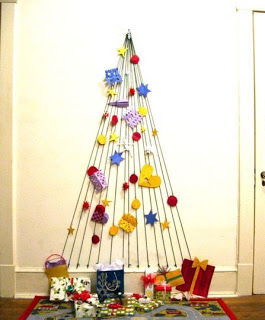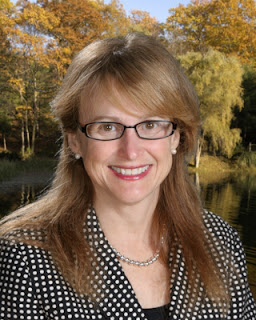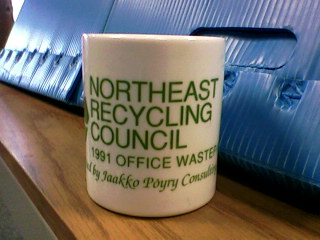Landfill Harmonic
This video has been making the rounds. It is a clip from Landfill Harmonic, an upcoming feature-length documentary about a remarkable musical orchestra in Paraguay, where the musicians play instruments made out of trash. I decided to repost it as it seems like an appropriate message for the holidays—it's very inspiring!
Cateura, Paraguay is a town largely built on top of a landfill. Like many poor communities built on or next to garbage dumps, recyclers rummage through the trash for sellable goods. According to the Landfill Harmonic website, Cateura's children are frequently at risk of getting involved with drugs and gangs.
Nicolas, a recycler who lives by the garbage dump…
Holiday Toy Swap Event
Looking for a great holiday reuse event?
I had the privilege of participating in a recent toy exchange event sponsored by the Northampton Department of Public Works ReUse Committee. This was the second annual Toy Exchange for this community of 28,540, located in Western Massachusetts.
According the DPW's Waste Management Supervisor, Karen Bouquillon, "Participants reaped all of the benefits of reuse—like saving money, natural resources, and energy, while providing free toys for local families. As an added bonus, it was a great opportunity to de-clutter before the holidays!"
The event was extremely well organized. Volunteers from the City's Reuse Committee received donations of used toys and sporting equipment on Friday, December 7 from 5pm-8pm and Saturday, December 8 from 8am-9am.…
Reducing our Global Holiday Footprint
 All those catalogs: According to Catalog Choice, U.S. households receive over 83 billion pieces of advertising mail each year. The organization estimates that, 46% is never read and 38% is not recycled.
All those catalogs: According to Catalog Choice, U.S. households receive over 83 billion pieces of advertising mail each year. The organization estimates that, 46% is never read and 38% is not recycled.
While we all like to look at the nice pictures of items in catalogues, the Internet affords us an equally pleasing view of most catalogues. Ordering items online is certainly faster and easier than ordering through catalogues. Catalogue Choice offers an easy "opt out" online answer to many of the most popular catalogues. It may take some persistence on our part to eliminate catalogue mailings as retailers like us to receive their catalogues, but even a small reduction in catalogue production can have a huge impact on our environment.
Memories of NERC’s Past
Jan Ameen, the Executive Director of the Franklin County Solid Waste Management District had these thoughts on her first encounter with NERC—early in her career in the waste management field.
|
The Mug |
"I recently read Shelley Dresser's article and it brought back lots of memories from my early days in the field. I graduated from Antioch in May 1990 and landed a job as the Vermont State Offices Recycling Coordinator in September of that year. My job was to set up recycling collections in state buildings in Waterbury, Montpelier (including the State House), correctional facilities, judicial buildings, state parks, and regional state offices.
In 1991, I participated in NERC's Office Wastepaper Study conducted by Jaakko Poyry. Mary from Jaakko Poyry showed…
Holiday Thoughts on Food and Waste
The Food Facts
Who doesn't enjoy a good holiday meal with family and friends? However, food abundance during the Thanksgiving to New Year holidays contributes to the general large increase in waste generation during this period. This season of giving and reflection presents an opportunity to take a look at our food waste and what each of us can do.
It is estimated that in the United States about 27 percent of all the food we produce for domestic sale and consumption is wasted.[1] This figure, more than 34 million tons of food, amounts to some 14 percent of the total municipal solid waste stream. According to the EPA, food waste now represents the single largest component of MSW reaching landfills and incinerators.[2]
American households toss out roughly 1.28 pounds of food each day. That amounts to more than 467 pounds per year,[3] or about 25 percent of the food we bring into our houses. All this wasted food adds up to approximately $2,200…
Global Trade and Recycling
The following article, by Robin Ingenthron, was originally posted on the Good Points Idea Blog.
There are those who think that global trade in recycling is a waste disposal campaign that exploits countries with poor labor and environmental standards. There are those who think that free and fair trade generally leads to better outcomes than government efforts to intervene between market supply and demand forces.
The latter argument is usually bolstered if the government restriction begins with half a recipe for success. Regulating the secondary market and ignoring the primary market is a textbook case of sloppy regulation.
The global production of metals and petroleum and timber is the elephant in the room which no one (else) is talking about. Mining residue and waste is considered domestic generation by Basel Convention; recycling residue and waste is considered a trans-boundary movement. This was an unfair playing field to begin with, but now advocates are trying to gut Annex IX, B1110, to add even repair and refurbishing to the list…
Manufacturing with Recycled Materials
Ever wonder what happens to your recyclables? Many people don't realize the size and extent of the recycling marketplace. Some materials get shipped to other parts of the country or overseas to be processed further or incorporated into new products. However, much of what we divert for recycling in the Northeast stays right here in the Northeast. The New York Recycling Markets Database includes more than 230 facilities that use recovered materials to make products.
Recycling is indeed integral to our regional economy. Here are just a few examples:
Washington Mills Electro Minerals, Inc. in Niagara Falls, New York uses more than 24,000 pounds of recycled aluminum oxide each year to make new aluminum oxide products.
 IceStone in Brooklyn, New York manufactures durable surfaces for countertops, bathroom vanities, conference tables, and wall and floor coverings using 100% recycled glass and concrete.
IceStone in Brooklyn, New York manufactures durable surfaces for countertops, bathroom vanities, conference tables, and wall and floor coverings using 100% recycled glass and concrete.
A-Turf, Inc.…
Disaster Preparedness and Clean-up
Due to the inevitability of Hurricane Sandy coming our way, it seems appropriate to keep this blog entry short and remind folks about NERC's document — "After the Disaster: A Guide for Residents and Small Businesses About Managing Debris Waste" — available for free download from the NERC website.
The document has pre-disaster tips for everything from brush clearing to toxic materials storage. The document also includes a wide range of clean-up information, including tips on drying out money, photos, appliances, and how to deal with mold.
Be safe!
Some Words from NERC's Founder
Shelley Dresser, NERC's founder and first Executive Director, continues our series of guest blogs by people who have been influential in NERC's 25 year history with some interesting notes on NERC's early history.
Here's what she says:
It is hard to imagine that NERC is 25 years old.
 NERC was conceived at the Solid Waste Conference at the Penta Hotel in New York, during a conversation I had with Bernard Melewski, Counsel, NYS Commission on SolidWaste. As a garbage barge floated around NYC on a 112 day expedition, attempting to find a home for trash it was carrying, it became clear that a solution oriented approach to solid waste management was necessary. With Maurice Hinchey, a legislator from New York and the chairman of the Council of State Governments environment committee, I had all the support I needed to begin this endeavor.
NERC was conceived at the Solid Waste Conference at the Penta Hotel in New York, during a conversation I had with Bernard Melewski, Counsel, NYS Commission on SolidWaste. As a garbage barge floated around NYC on a 112 day expedition, attempting to find a home for trash it was carrying, it became clear that a solution oriented approach to solid waste management was necessary. With Maurice Hinchey, a legislator from New York and the chairman of the Council of State Governments environment committee, I had all the support I needed to begin this endeavor.
NERC's…
Launching Innovation: Transforming Materials Management in CT
The CT Department of Energy and Environmental Protection (DEEP) hosted a series of three Summits as part of their Solid Waste Management Plan and Climate Change Action Plan strategies. The idea for the events grew out of a Roundtable discussion which took place on January 18, 2012 with Northeast environmental and economic development commissioners. The Roundtable set the stage for exploring how 21st century waste management could unlock the value of the materials economy.
The last Summit was held on October 4, 2012 and focused on moving the "transformative materials management journey" from learning and ideas to action.
Presenters included:
- Commissioner Daniel C. Esty
- Geri Weiss, EPA New England
- Kerrin O'Brien, Michigan Recycling Coalition
- DEEP Deputy Commissioner Macky McCleary to share highlights on the Governor's Recycling Working Group findings
- David T. Hudson, Strategic Materials, Inc.
- Lynn Rubinstein, Northeast Recycling Council, Inc.
- Kristin…



